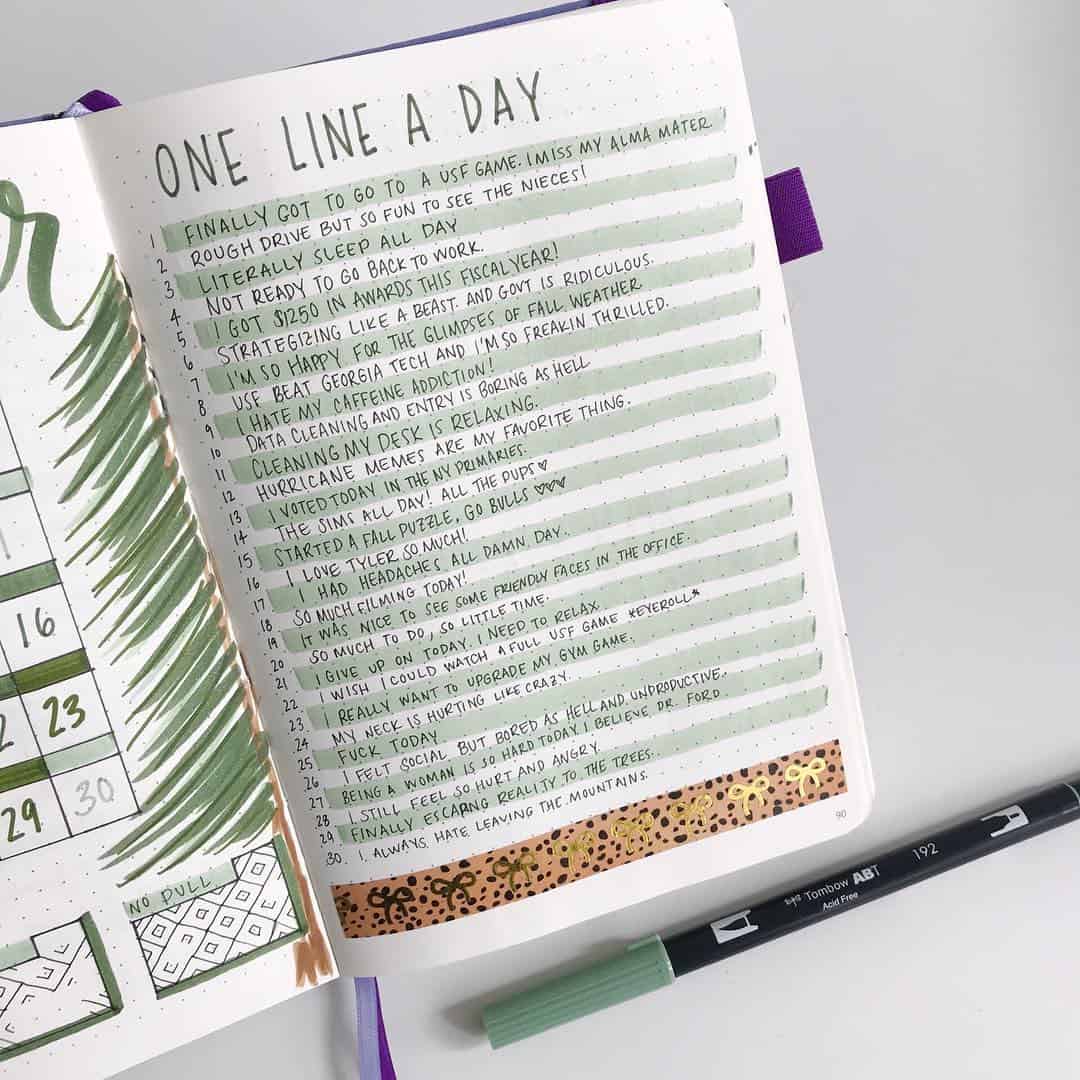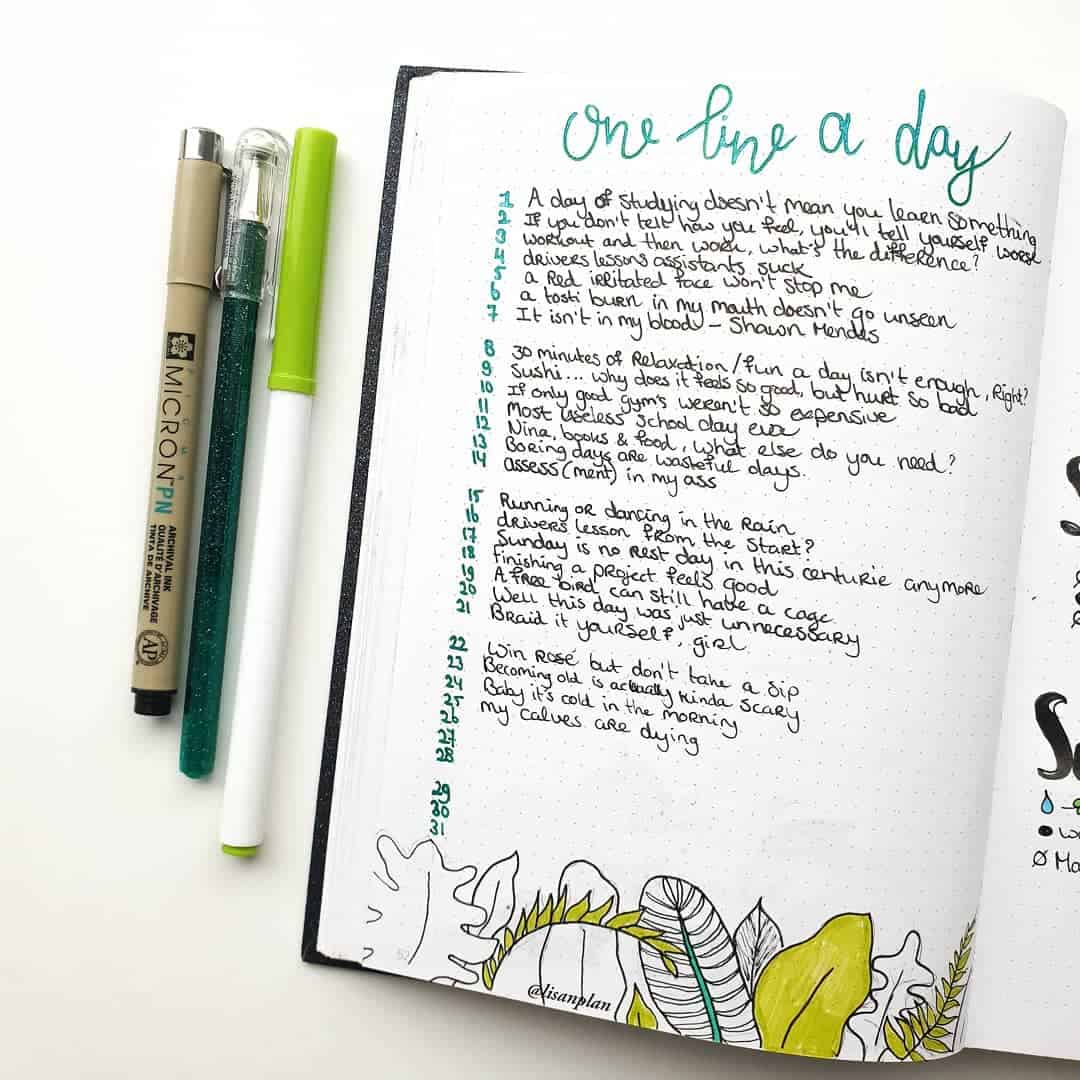Best One Line A Day Journal: Quick Daily Reflection
A concise method of journaling involves recording a single sentence or brief thought for each day. This approach offers a manageable way to document daily life, personal reflections, or noteworthy events. For example, an individual might write, "Successfully completed project milestone," or "Enjoyed a peaceful walk in the park this afternoon."
This practice fosters consistent reflection, capturing a snapshot of experiences over time. The accumulation of daily entries creates a valuable historical record, revealing patterns, growth, and shifts in perspective. Its brevity reduces the barrier to entry, making journaling accessible and sustainable for many individuals. This method has roots in simpler diary formats and has been popularized through various modern adaptations.
The subsequent sections will delve into the specific benefits, practical applications, and variations of this journaling technique, exploring its potential to enhance self-awareness and provide a meaningful chronicle of personal history.
- Who Is Tommy Aldridge Dating Now Past
- What Happened To Tina Turner S Sister
- Duane Underwood Jr Family Parents Ethnicity Where
- Dr Cade Hunzeker Cause And Death How
- Connor Payton Is Sean Payton S Son
Frequently Asked Questions Regarding Concise Daily Journals
This section addresses common inquiries concerning the nature, purpose, and effective use of abbreviated daily journaling practices.
Question 1: What is the primary benefit derived from maintaining such a journal?
The chief advantage lies in the ability to establish a consistent habit of reflection. The minimal time commitment required lowers the barrier to entry, enabling long-term engagement with personal documentation.
- Who Is Corinna Kopf Biography Net Worth
- Bishop Briggs Husband Did Not Propose Her
- Ryan Reynolds Brothers Meet Patrick Reynolds
- Tiffany Lau Bio Age Wiki Facts And
- Alyssa Grenier Obituary South Windsor Ct Alyssa
Question 2: How much time should be allocated to each daily entry?
Entries should ideally be completed within a few minutes. The essence of the practice is brevity and ease of execution, not exhaustive detail.
Question 3: Is it necessary to record events every single day without exception?
While consistency is beneficial, occasional missed days are inconsequential. The objective is to cultivate a habit, not to adhere to an inflexible regimen.
Question 4: What types of content are suitable for inclusion in this kind of journal?
Acceptable content encompasses a broad range of subjects, including significant events, noteworthy observations, personal reflections, and expressions of gratitude. The focus should be on capturing the essence of the day.
Question 5: Does the format of the journal significantly impact its effectiveness?
The formatwhether physical or digitalis a matter of personal preference. The critical element is the consistent practice of daily recording, regardless of the chosen medium.
Question 6: How can entries be reviewed effectively to identify patterns or trends?
Regularly reviewing past entriesperhaps monthly or annuallyallows for the identification of recurring themes, shifts in mood, and patterns of behavior. This analysis can provide valuable self-insight.
In summary, consistent, brief daily journaling provides a manageable tool for self-reflection and historical documentation. Success relies on ease of use and sustained practice.
The following section will explore specific strategies for maximizing the benefits of this journaling approach.
Optimizing a Concise Daily Journaling Practice
The subsequent recommendations aim to enhance the effectiveness of abbreviated daily entries and maximize the benefits derived from this reflective practice.
Tip 1: Establish a Consistent Time. Allocating a specific time each day for journaling promotes consistency. Integrating the practice into an existing routine, such as before bed or during a morning coffee, increases adherence.
Tip 2: Focus on Essence. The goal is to capture the core of the day, not to provide exhaustive details. Prioritize the most significant event, feeling, or observation. For example, rather than detailing an entire meeting, record the key decision made.
Tip 3: Employ Keywords. Utilize keywords or short phrases to encapsulate the essence of the day. This method saves time and facilitates quick recall during future reviews. For instance, "Successful presentation" or "Unexpected visit."
Tip 4: Embrace Imperfection. Do not strive for literary perfection. The primary objective is documentation, not eloquent prose. Focus on clarity and conciseness.
Tip 5: Regularly Review Entries. Periodically review past entries to identify patterns, track progress, and gain self-awareness. A monthly or quarterly review is recommended.
Tip 6: Maintain a Digital Backup. If using a physical journal, consider creating a digital backup of entries. This safeguards against loss or damage and facilitates keyword searches.
Consistent application of these strategies optimizes the benefits of concise daily journaling, transforming it into a valuable tool for self-reflection and personal growth.
The concluding section will summarize the key advantages of abbreviated daily journaling and offer final considerations for its sustained practice.
Conclusion
The preceding sections have detailed the practice of maintaining a "one line a day journal", emphasizing its accessibility and potential benefits. The ease of recording minimal daily information cultivates consistent reflection, providing a chronological record of personal experiences and insights. The review of accumulated entries facilitates the identification of trends and patterns, enhancing self-awareness. This approach presents a sustainable method for documenting personal history.
Consider the implementation of this practice as a means of fostering self-reflection and preserving a concise chronicle of daily life. The consistent, albeit brief, engagement with personal journaling offers a valuable tool for understanding oneself and documenting the passage of time. Future advantages may include using such archives for recollection and reminiscing, or even to pass down as a form of personal history.
- Thomas Flohr Net Worth How Rich Is
- Kanwal Rekhi Net Worth Income Salary Earnings
- Antc3b3nio Guterres Wife Meet Catarina Marques
- French Montana Says Max B Might Be
- Denise Nicholas Age Bio Wiki Height Net

45 different styles to create "One Line a Day" in your Bullet Journal

45 different styles to create "One Line a Day" in your Bullet Journal

45 different styles to create "One Line a Day" in your Bullet Journal